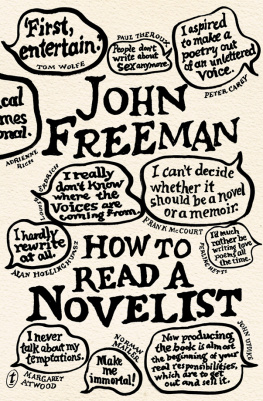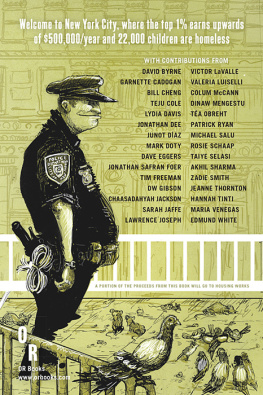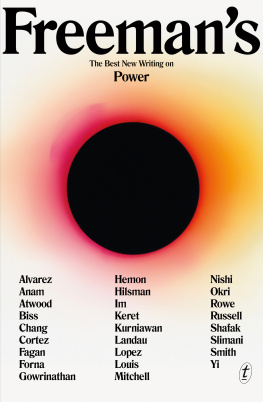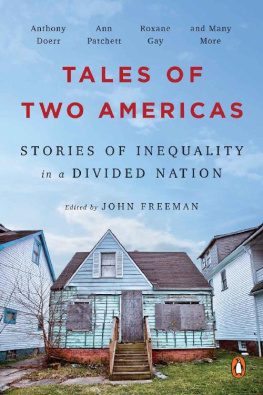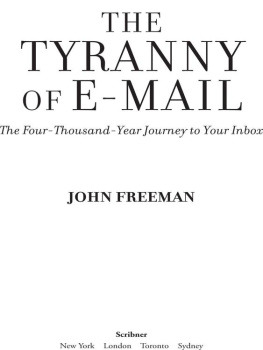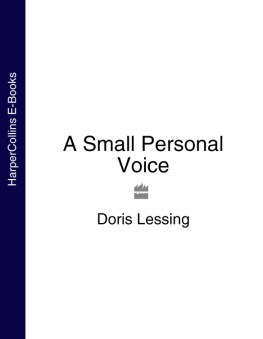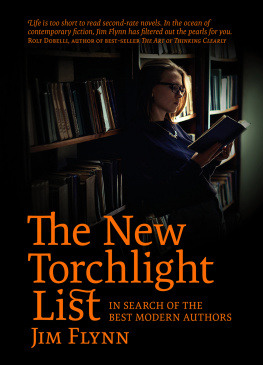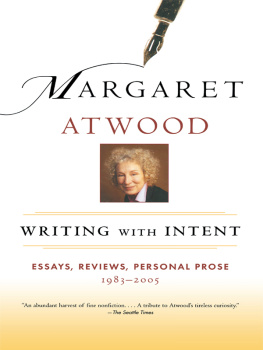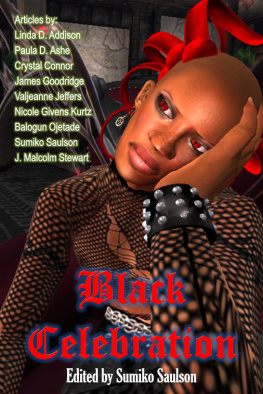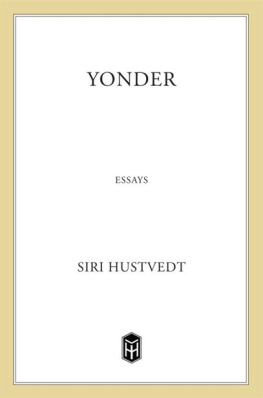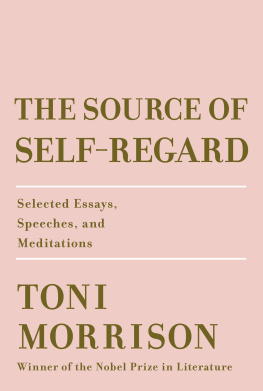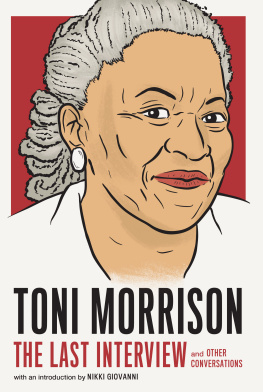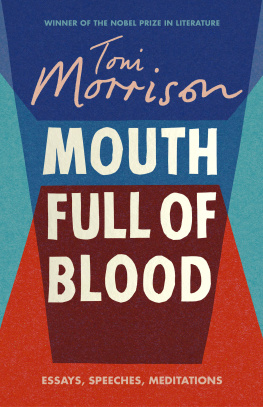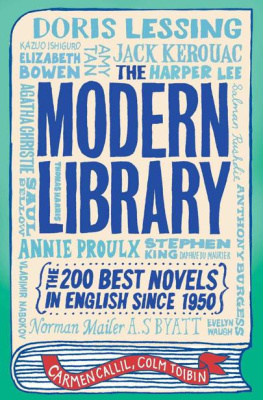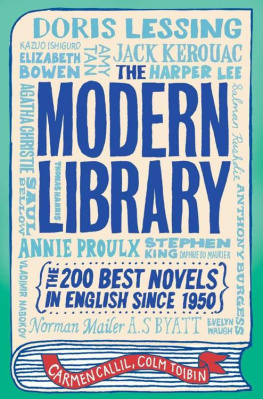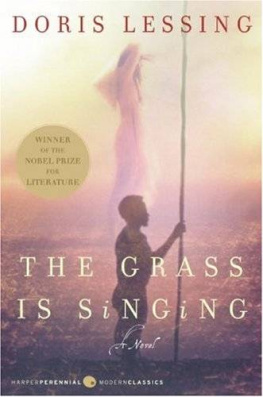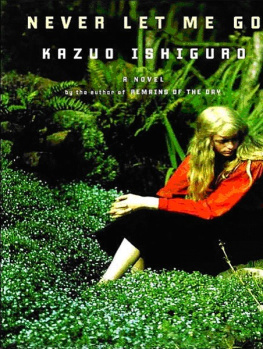John Freeman - How to Read a Novelist
Here you can read online John Freeman - How to Read a Novelist full text of the book (entire story) in english for free. Download pdf and epub, get meaning, cover and reviews about this ebook. year: 2012, publisher: The Text Publishing Company, genre: Art. Description of the work, (preface) as well as reviews are available. Best literature library LitArk.com created for fans of good reading and offers a wide selection of genres:
Romance novel
Science fiction
Adventure
Detective
Science
History
Home and family
Prose
Art
Politics
Computer
Non-fiction
Religion
Business
Children
Humor
Choose a favorite category and find really read worthwhile books. Enjoy immersion in the world of imagination, feel the emotions of the characters or learn something new for yourself, make an fascinating discovery.
- Book:How to Read a Novelist
- Author:
- Publisher:The Text Publishing Company
- Genre:
- Year:2012
- Rating:5 / 5
- Favourites:Add to favourites
- Your mark:
How to Read a Novelist: summary, description and annotation
We offer to read an annotation, description, summary or preface (depends on what the author of the book "How to Read a Novelist" wrote himself). If you haven't found the necessary information about the book — write in the comments, we will try to find it.
How to Read a Novelist is the ultimate booklovers book.
John Freeman, author and editor of Granta magazine, has interviewed nearly every name in fiction and the literary world. In this collection Freeman has compiled the most insightful and fascinating of his interviews, essays and articles.
Paul Theroux on the state of sex in America, Margaret Atwood as inventor, John Updike as relationship advisor and Geoff Dyer as Englands hippest middle-aged novelist, among many others including Philip Roth, Siri Hustevdt, Doris Lessing, Kirin Desai, Toni Morrison, Kazuo Ishiguro, Tom Wolfe and Peter Carey.
Interviews, essays and articles:
Toni Morrison, 2004
Jonathan Safran Foer, 2005
Haruki Murakami, 2008
Richard Ford, 2007
Ngugi wa Thiongo, 2006
Gunter Grass, 2007
Nadine Gordimer, 2007
David Foster Wallace, 2006
Khaled Hosseini, 2007
Doris Lessing, 2006
Hisham Matar, 2007
Siri Hustvedt & Paul Auster, 2008
Kazuo Ishiguro, 2005
Charles Frazier, 2006
Edmund White, 2005
Geraldine Brooks, 2008
Imre Kertsz, 2004
Oliver Sacks, 2007
Kiran Desai, 2006
Philip Roth, 2006
Lawrence Ferlinghetti, 2006
Dave Eggers, 2005
Vikram Chandra, 2007
Adrienne Rich, 2006
Tom Wolfe, 2004
Robert M. Pirsig, 2006
Elif Shafak, 2007
Peter Carey, 2008
Mo Yan, 2012
Donna Leon, 2005
John Updike, 2003
Seamus Heaney, 2006
Joyce Carol Oates, 2007
Paul Theroux, 2005
Don DeLillo, 2006
Louise Erdrich, 2008
Norman Mailer, 2007
James Wood, 2008
Margaret Atwood, 2006
Mohsin Hamid, 2007
Richard Powers, 2006
Alan Hollinghurst, 2004
Ian McEwan, 2005
Caryl Phillips, 2005
Wole Soyinka, 2007
Salman Rushdie, 2005
Jim Crace, 2007
Marilynne Robinson, 2012
Edmundo Paz Soldn, 2006
Amitav Ghosh, 2008
Ayu Utami, 2006
Frank McCourt, 2005
Sebastian Junger, 2006
Geoff Dyer, 2003
A. S. Byatt, 2005
John Freeman is an award-winning writer and book critic who has written for numerous publications, including the New York Times Book Review, Los Angeles Times, Guardian and the Wall Street Journal. Freeman won the 2007 James Patterson Pageturner Award. He is the editor-in-chief of Granta and lives in New York City.
textpublishing.com.au
John Freemans collection of interviews spans 56 giants of the literary world, nine years and an accumulated IQ reaching into the stratosphere. Sunday Star Times
Pure gold...Full of wit and wisdom; a buoy in the face of lifes inevitable swats. Insights Magazine
Freemans interviews transcend the mechanics of the encounters and, beyond smart and knowledgeable, hes the kind of interlocutor who asks a sideways question, then pays attention to the space and circumstance of the answer as much as to its words. Weekend Australian
John Freeman: author's other books
Who wrote How to Read a Novelist? Find out the surname, the name of the author of the book and a list of all author's works by series.

